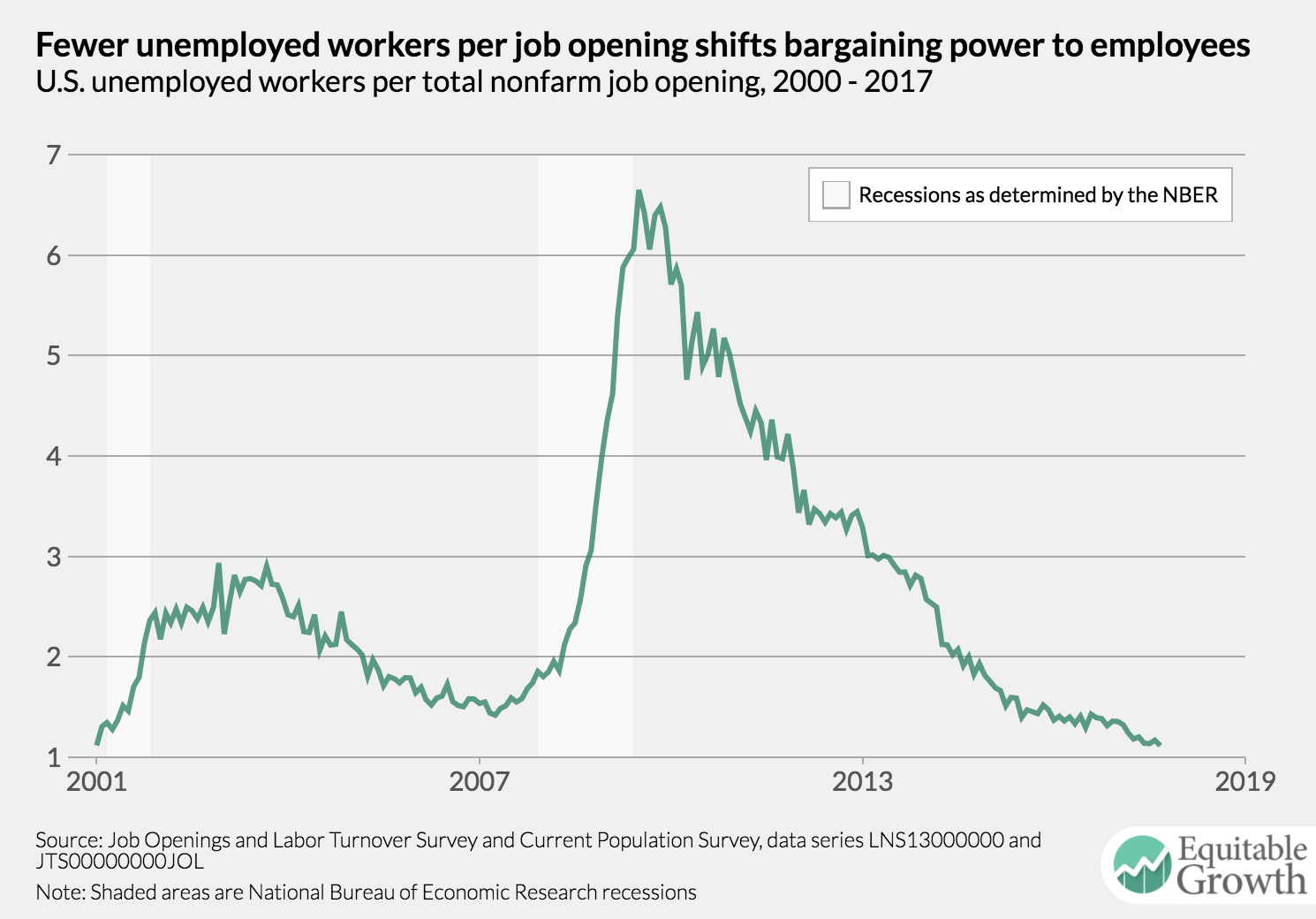Weekend reading: “the tax plan arriveth” edition
This is a weekly post we usually publish on Fridays with links to articles that touch on economic inequality and growth, but in honor of Veterans’ Day tomorrow we’re publishing a day early this week. The first section is a round-up of what Equitable Growth published this week and the second is the work we’re highlighting from elsewhere. We won’t be the first to share these articles, but we hope by taking a look back at the whole week, we can put them in context.
Equitable Growth round-up
House Republicans’ tax plan will not spur innovation and job creation as promised, argue University of California, Berkeley economists Emmanuel Saez and Gabrial Zucman, because it benefits passive business owners, not active entrepreneurs.
With all the attention garnered by Amazon.com Inc.’s recent public call for proposals from cities and states for a new second headquarters, it’s timely to consider the effectiveness of government incentive programs at attracting new investments and new businesses. In a column exploring some of the lessons from his recent working paper, University of Texas at Austin’s Nathan Jensen argues that whatever location wins the new project needs to be sure it conducts a thorough analysis to learn whether any tax abatements are really worth the cost.
The U.S. Bureau of Labor Statistics released new data on hiring, firing, and other labor market flows from the Job Openings and Labor Turnover Survey, better known as JOLTS. Check out the key graphs from the report chosen by Equitable Growth staff.
The Tax Foundation’s estimate that the House Republicans’ tax plan would increase U.S. GDP is probably substantially overstated because of at least two important flaws in its model, according to new analysis by Equitable Growth’s Greg Leiserson. The analysis suggests that policymakers should be skeptical of Tax Foundation’s results, especially when considering substituting its estimates for those from traditional legislative scorekeepers at the nonpartisan Joint Committee on Taxation.
The tax plan introduced by House Republicans’ last week would eliminate the estate tax if passed as currently drafted. Nick Bunker explains how getting rid of the estate tax would eliminate an important backstop for lost revenue because of the step-up in basis treatment of capital gains, threatening to further exacerbate growing wealth inequality.
Links from around the web
How the proposed tax cuts will affect you depends on how you earn your money. [wsj]
The release of the Paradise Papers earlier this week underscores just how severe wealth inequality is, with an estimated 80 percent of offshore wealth held by the top 0.1 percent. [business insider]
“There’s no reason unemployment can’t go under 4 percent” (with a shout-out to Equitable Growth’s own Nick Bunker). [washington post]
“Americans see jobs aplenty. Good wages? Not so much.” [cnn money]
Former Treasury Secretary Robert Rubin argues for a job guarantee program rather than a universal basic income policy to address the job dislocation and wage pressure caused by rapid technological development and globalization. [nyt]
Friday figure

Figure is from Equitable Growth’s “JOLTS Day Graphs: September 2017 Report Edition”
